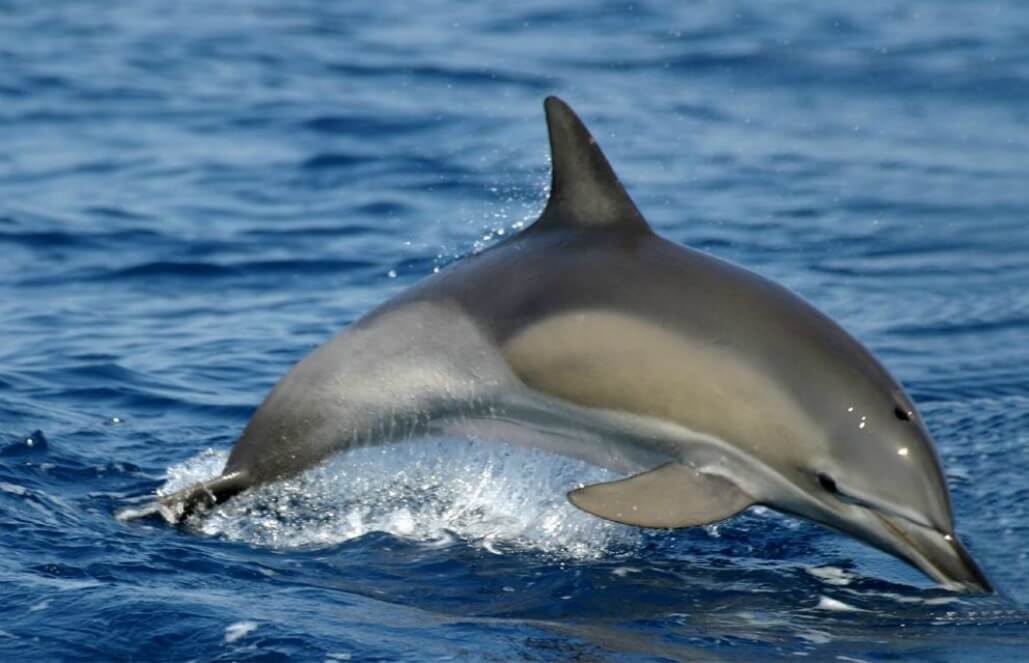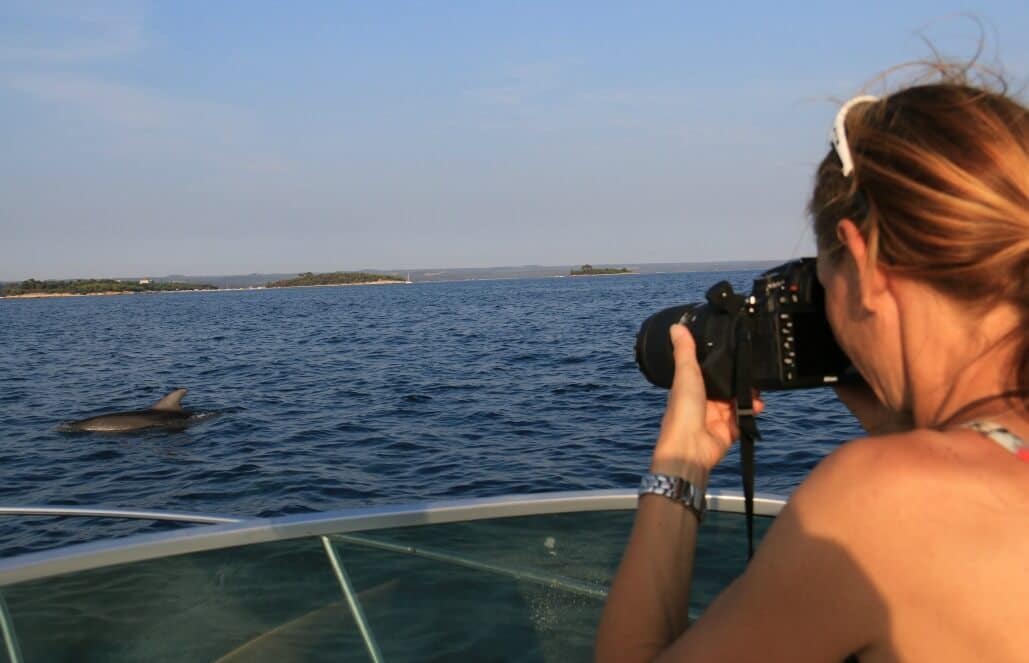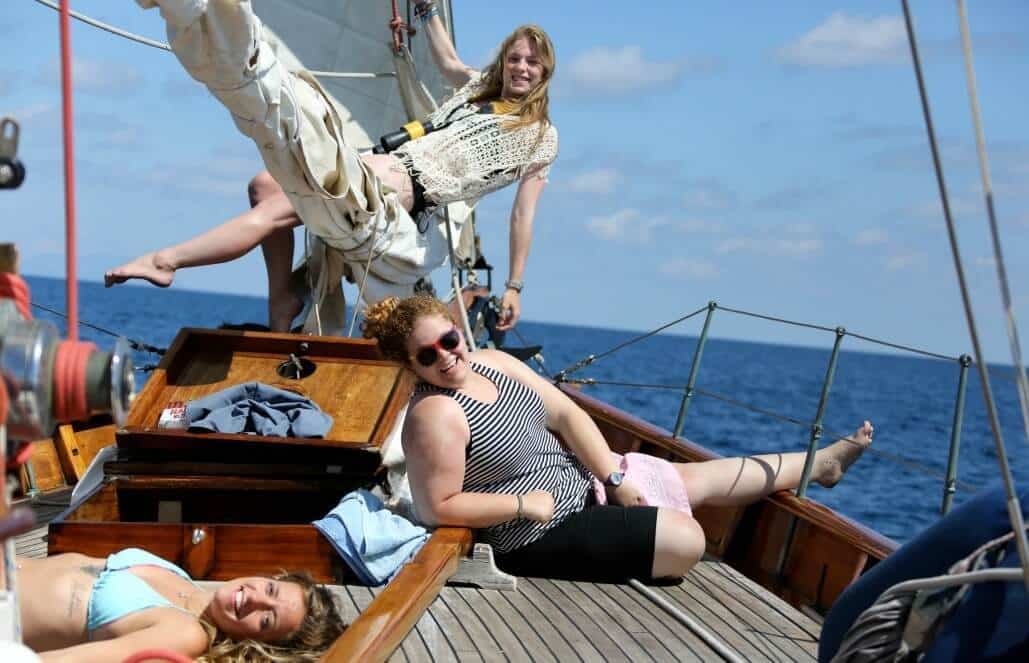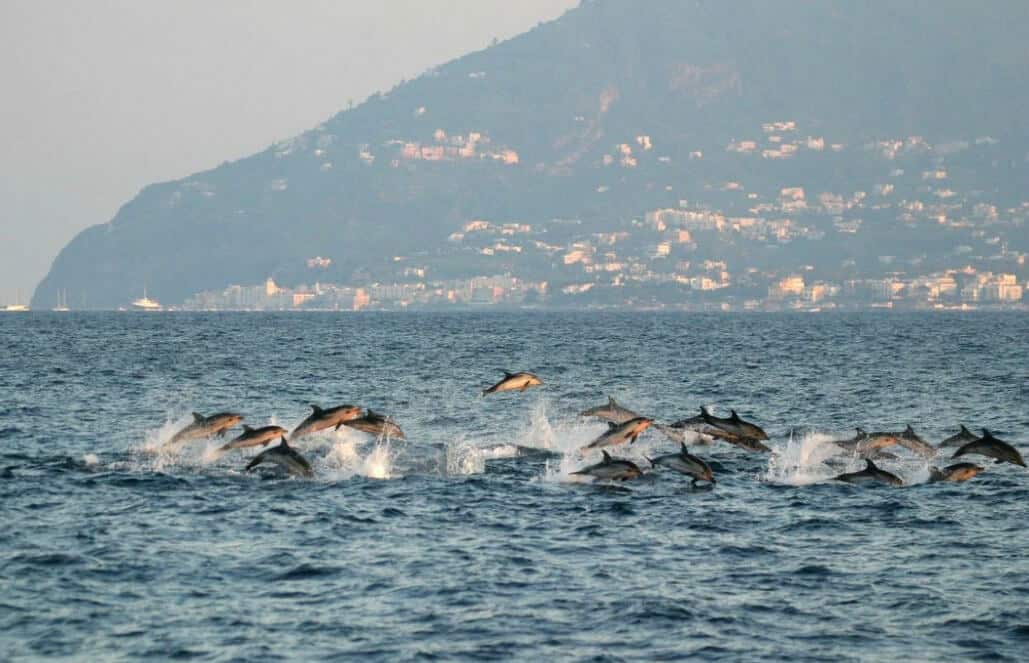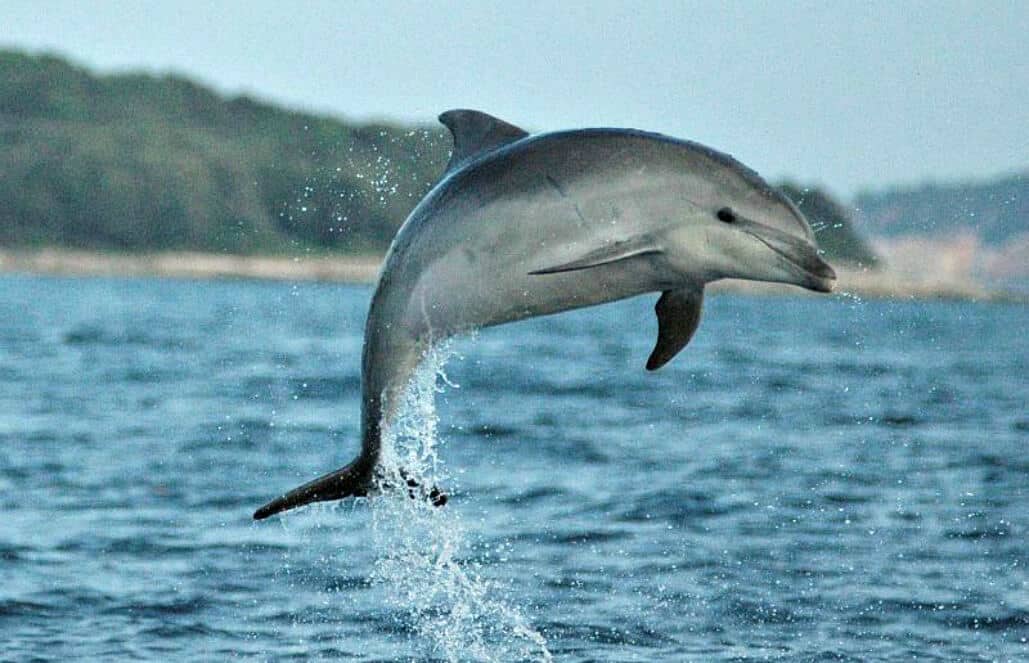Dolphins are beautiful cetaceans and one of the sea’s most-loved animals. They are playful, social and considered to be extremely intelligent. There are close to 40 different species of dolphins, and they can be found not only in tropical waters but also in rivers and in cooler ocean waters off the coast of Europe.
The friendliness, and fascination of, dolphins has led, unfortunately, to captivity for many. They are stars at aquatic theme parks throughout the world as well as in aquariums and dolphinariums, where they are used to raise money through performing tricks in the small water pools. In Japan, dolphins face the threat of drive hunting, where they are led into a small area and killed for their meat or sold to dolphinariums.
They face other threats in European waters. Many dolphins are in danger of being tangled in an accidental by-catch from a fishing net. Climate change is also contributing to a loss of their natural habitat, in addition to the pollution caused by increasing tourism numbers. Dolphins do not have many natural predators, which makes humans their biggest threat. Collecting data on how these factors are harming the dolphin population is a necessary first step in the conservation process of this marine species.
Dolphin programs
The good news is, you can personally aid in the conservation of dolphins by participating in a research-based volunteer program! As a dolphin research volunteer, you will gain the knowledge and skills necessary to help make a difference.
Volunteers learn how to study behavior, how to identify individual dolphins and can even learn how to record bioacoustics. Data collected on existing populations of different dolphin species is useful for marine biologists and conservationalists, as they can investigate into any population changes. Furthermore, many of these research-intensive programs include outreach activities, where volunteers and the local marine biologists can expand their knowledge of marine conservation to the general public.
Volunteering at Sea
So what does a volunteering program in the high seas look like? GoEco offers two research-intensive dolphin programs, in the waters of Croatia and Italy.
Volunteers at the Bottlenose Conservation program in Croatia will spend their days sailing in the beautiful North-Eastern Adriatic Sea, collecting data on the local bottlenose populations. Volunteers on this program have the unique pleasure of working with the only organization in the region conducting dolphin research! Volunteers will also learn how to distinguish between dolphin species and assist in outreach for the establishment of a dolphin education center.
Volunteers on the Liveaboard Dolphin Research Expedition in Italy will have a completely immersive experience, and actually live aboard a historic boat! Volunteers and the on-board biologists set sail each day, and sleep in the docked boat each night. Participants will sail along the coast of the Italian island of Ischia and learn to study dolphin behavior and record bioacoustics. Dolphin research on this program is not focused on one particular species, and Ischia Island is home to striped, Risso’s and short-beaked dolphins alike. In addition to its scientific goals, the project promotes education and awareness activities for the public and aims to improve the marine conservation efforts in the area.
Why Europe?
Who doesn’t dream of spending their summer on the coasts of Europe?
The Liveaboard Dolphin Research Expedition takes place along the coast of the beautiful Italian island of Ischia, often called the “Green Island” because of its lush flora and fauna. It is a popular destination for those seeking natural thermal springs, as well. The island of Ischia, and this program, are very in-tune with marine conservation efforts. The volunteers and marine biologists of this program have directly contributed to the establishment of the marine protected area known as Neptune’s Kingdom. Don’t miss your chance to be a part of the success!
Croatia is another European country with islands (over 1,000!) The country boasts a gorgeous, rocky coastline with deep blue waters, complete with friendly fisherman and locals. Zambratija is laden with extensive olive groves that overlook beautiful views of the sea and has often been compared to the Italian region of Tuscany. Dolphin research is lacking, however, in this magnificent country, which is why data collected on the Bottlenose Dolphin Conservation program and its outreach initiatives for a dolphin education center are so important.
5 Fun Facts About Dolphins
1. Dolphins are social and intelligent animals, but they have no sense of smell!
2. Dolphins are a part of the cetacean family, and killer whale are actually a species of dolphin (and the largest.)
3. Some dolphins can swim as fast as 20 miles per hour, dive down 1,000 feet and live to be 50 years old.
4. Bottlenose dolphins can live to be 40 yeas old, but the killer whale can live to be 80.
5. Dolphins are caring animals- if a pod member is injured, the other members tend to him.
Learn more about dolphins by volunteering with them close-up on one of our Dolphin Research and Conservation programs!


